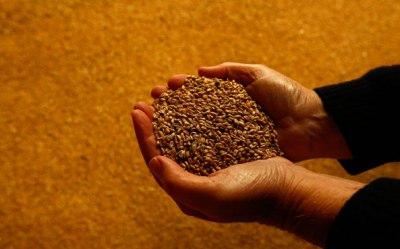After Kerala and Tamil Nadu rolled out National Food Security Act (NFSA), entire country has now implemented this, Indian minister of consumer affair, #food & public distribution, Ram Vilas Paswan said on November 3, 2016.
Speaking to media persons, the minister said that 813.4 million people will get wheat at $0.02 (Rs 2 per kg) and rice at $0.03 (Rs 3 per kg) across all the states and union territories.
Being an important initiative for ensuring food security of the people, the Government of India actively pursued with all the States/UTs for its early implementation, Paswan stressed.
Paswan said now the Center will focus on further reforms in PDS, which will include end to end computerization of the system for which States/UTs are being technically and financially assisted.
He said this is important for bringing in transparency in the functioning of the public distribution system (PDS), which is vital feature of NFSA, in order to check leakages and diversion of food grains.
Highlighting other initiatives taken by the Centre to make the PDS leakage proof, Paswan said that the beneficiary’s data base has been digitized in all the 36 States/UTs, wherein, information is available right up to beneficiary level and is in the public domain.
Online allocation of food grains in being done in 28 States/UTs, and the entire foodgrain supply chain has been computerized in 18 States/UTs. 100 percent linkage of Ration Cards with Addhar, which is 71 per cent at the moment, will be achieved.
Food grains losses of #FCI have been brought down to 0.04 percent and major FCI depots have been made online.
Leakage-free distribution of food grains
In another significant step towards better targeting and leakage-free distribution of food grains, direct benefit transfer is being carried out in two different modes.
In the first mode, food subsidy is being transferred in cash into the bank account of beneficiaries, who then have the choice to buy food grains from the open market. This has been started in UTs of Chandigarh, Puducherry and urban areas of Dadra & Nagar Haveli.
The second mode involves automation of fair price shops, for distribution of food grains through an electronic point of sale (e-PoS) device which authenticates beneficiaries at the time of distribution and also electronically captures the quantum of food grains distributed to the family.
As of October 31, 2016, e-PoS devices are operational in 161,854 fair price shops.
Financial assistance for transportation and handling of food grains
For smooth functioning of PDS, State Governments are also being provided Central assistance for meeting expenditure of intra-State transportation & handling of food grains and fair price shop dealer’s margin. The assistance for fair price shops dealers margin also contains a component of assistance for installation and operation of Pos devices at fair price shops.
So far, Rs 1874 crore has been released to State Governments by the Government of India in 2016-17.
At this current coverage, monthly allocation of food grains to States/UTs under the Act is about 4.55 million tonnes, with subsidy implication of about $1.75 billion (Rs 11,726 core) per month or about $21 billion (Rs 1,40, 700 crore) per year.
Regarding Sugarcane arrears, Paswan said 2014-15 arrears which were $3.14 billion (Rs 21,000) at the peak have now come down $30.69 million (Rs 205 crore). Prices of pulses except Chana have come down.
Regarding wheat prices he said that government has decided to release additional 1 million tonnes wheat for sale in domestic Market under FCI OMS scheme.




















